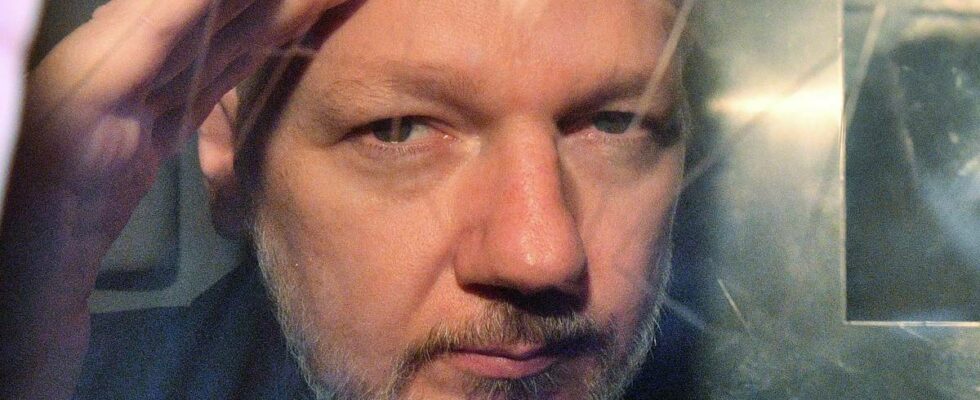Exactly two weeks before he was due to appear again in court in London to fight extradition to the United States, the case took a surprising turn. Julian Assange has left London and is on his way to his home country of Australia. On the way, an American judge will tonight approve the agreement he has entered into with the American state. If he does, Assange is a free man. It was a self-confident Julian Assange who came to London in 2010 to present revelations of alleged US war crimes. He brushed off concerns that the release of the classified documents could put lives at risk. Julian Assange shows off The Guardian’s front page on July 26, 2010. Photo: LEON NEAL / AFP When he was reported for rape in Sweden in 2010, he refused to go there to be questioned. He feared that Sweden would extradite him to the United States. He was seen as paranoid who could believe such a thing. When he had spent five years in asylum in the Ecuadorian embassy in London, the Swedes dropped the rape cases. Two years later, the Americans demanded Assange’s extradition when they accused him of espionage. He risked 175 years in an American prison. For the past five years, the Australian has been in a high-risk prison in London awaiting the conclusion of the extradition trial. There is not much left of the once confident Wikileaks founder. In the six square meter cell he has had at his disposal, his health has declined precipitously. His wife Stella Assange has said in several interviews with news in recent years that she fears he will not survive the trial. Yesterday, Assange looked considerably more spry as he boarded the plane to take him out of the UK than he did when he left the Ecuadorian embassy five years ago. Julian Assange on his way to the plane that will take him from London on Monday 24 June. Photo: WikiLeaks via X Now the British will not have the last word in the dispute between the Australian and the US. The parties have entered into an agreement that gives Assange his freedom back. In return, Assange must plead guilty to obtaining and publishing classified material. He has completed his sentence in the prison in London. The agreement comes after considerable pressure against US President Joe Biden. Not only have organizations fighting for freedom of the press and freedom of expression demanded that the charges against Assange be dropped. The Australian Parliament has also adopted such a demand and the Prime Minister has presented the demand to the US President. Between the court hearings, rumors have swirled that a diplomatic solution could be reached. But would it come before it was too late? Now it came before the next scheduled court round in two weeks. Biden thus avoids the risk of losing the extradition case in British law, while Assange gets his freedom, and perhaps his health and family back. Win-win, one might say. Screenshot from a video published on Wikileaks’ account on the X day Assange left London after 14 years. Photo: Wikileaks via X But where there are winners, there are also losers. And the loser in the agreement that has now been concluded is freedom of the press, according to several of its champions. Representatives of freedom of the press and freedom of speech organizations have faithfully come forward to fight for Assange’s release every time his case has been before a courtroom. They believe that Julian Assange has acquired and published information in line with journalistic practice. That he is a hero who has exposed abuse and crimes. Demonstrations in support of Assange outside the High Court in London, 20 May this year. Photo: Kin Cheung / AP Although Assange now admits guilt for having collaborated with the soldier Chelsea Manning on the data theft of the documents, and then their publication. Manning served seven years in prison. When Assange now confesses that this was a criminal act, it is not the victory these organizations had hoped for. Biden should have dropped the charges and let Assange go without a confession, writes the Freedom of the Press Foundation in The Guardian. The reasoning is that when Assange is now convicted for having published classified information, it places limitations on other journalists’ search for the truth. They too risk being judged as spies. And when a man who constantly refers to the press as the enemy of the people can become the next president of the United States, they believe that the agreement that has now been concluded can act as fuel for the fire. Do you want more content from news’s foreign editorial team? Listen to this: Published 25.06.2024, at 21.59 Updated 25.06.2024, at 22.03
ttn-69
Julian Assange is released. But not without cost. – news Urix – Foreign news and documentaries

